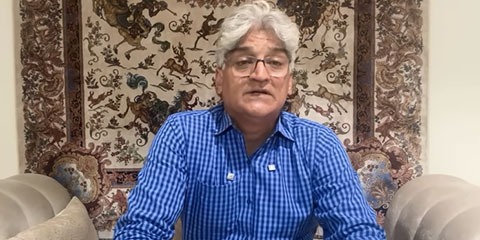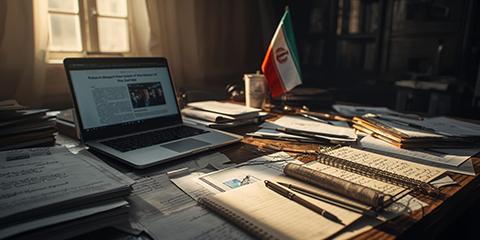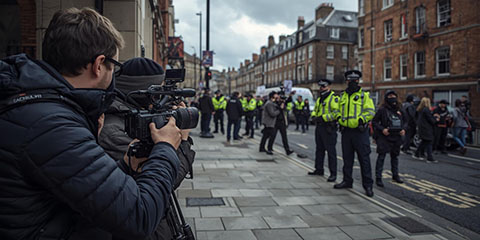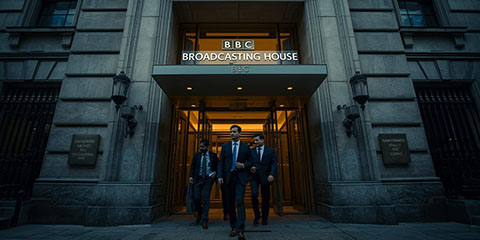Pakistan strides towards journalists' safety but destination still far: report
JournalismPakistan.com | Published 3 years ago
Join our WhatsApp channel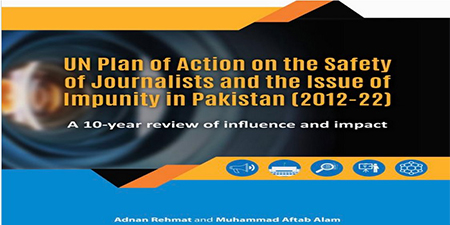
ISLAMABAD—Pakistan has partly delivered on promises to protect its journalist community, mainly through efforts by civil society, media, and the UN since 2012. Still, it needs to effectively implement new laws to ensure perpetrators of attacks on journalists are held to account, according to a new research report.
The report titled “UN Plan of Action on the Safety of Journalists and the Issue of Impunity in Pakistan (2012-2022): A 10-year Review of Influence and Impact” was launched by the Institute for Research, Development & Advocacy (IRADA) Tuesday at the Islamabad Journalist Safety Forum.
The 2012 UN Plan of Action was a critical guiding document through which the UN urged Member States and other stakeholders to protect journalists. Pakistan was one of the five pilot countries selected for the plan’s implementation in 2013.
The country’s Parliament enacted a special law to protect journalists in 2021 after years of consistent advocacy by media and civil society. The law commits the government to use the best practices of the UN Plan of Action to combat impunity in crimes committed against journalists.
The report evaluates and quantifies Pakistan’s implementation of the UN Plan of Action in terms of the performance of the state, media, civil society, and multilateral international organizations.
Its findings are based on a framework of analysis that used UNESCO’s Journalists’ Safety Indicators and desk research to assess the actions taken by the relevant stakeholders on raising awareness, monitoring threats, making policies, developing capacity, and building coalitions related to journalists’ safety, during the past decade.
The study’s findings suggest that the various stakeholders of journalists’ safety in Pakistan have produced significant actions with short to medium-term implications, giving the country an overall score of 1.64 on a scale of 0 to 3. However, the report notes that this performance has not been able to reduce or end impunity in attacks on journalists, meaning the attackers and killers of journalists go unpunished, leaving much to be desired.
The report’s findings were vetted by an 11-member steering committee of eminent human rights defenders, intellectuals, and journalists, including Farhatullah Babar, Asma Shirazi, Amber Shamsi, and Nasir Zaidi.
The study’s co-author Muhammad Aftab Alam, Executive Director of IRADA, said Pakistan is one of the few countries worldwide that has shown meaningful progress in implementing the UN Plan of Action.
“We now have a legal framework for the protection of journalists at the national level and in Sindh province,” Alam said. “However, we are yet to see full operationalization of the safety commissions promised under these laws that could create deterrence against attacks on journalists through efficient investigations and effective prosecution.”
Adnan Rehmat, the study’s other co-author, and a media development expert said the report provides an accounting over ten years of which areas and stakeholders were most committed to ensuring the safety of journalists.
“We hope that the study will inform the State, media, civil society, and the UN system about the good work that can be built upon and the gaps that need to be addressed to ensure that journalists and media organisations can work independently in the public interest,” Rehmat said.
The report recommends that the federal and Sindh safety commissions should be made fully functional, similar laws should be enacted in other provinces and regions, the enforcement of the laws should be monitored to address impunity, national human rights institutions such as the National Commission for Human Rights should be supported to take up the issue of journalists’ safety, and comprehensive monitoring of threats against journalists should be conducted.
Download
UN plans of Action on the Safety of Journalist and the Issue of Impunity in Pakistan (2012-2022)







